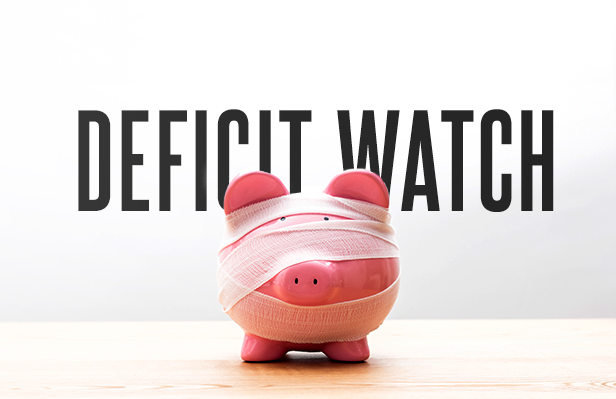Media

Pennsylvania Deficit Watch: January 2017
Pennsylvania fell further into a financial hole during the month of December. According to the Department of Revenue, total General Fund collections came in $105.2 million below the state's official estimate. This marks the second straight month—and five of the last six—where revenue collections failed to meet expectations.
Overall, Pennsylvania collected approximately $2.6 billion last month, which was 3.9 percent less than anticipated. To date, revenue collections are approximately $367 million below estimate.
The $1.3 billion revenue package passed last July, which includes $650 million in higher taxes, is proving inadequate to pay for the 2016-17 budget's $1.6 billion increase in government spending.
The chart below shows revenue collections lagging official estimates in the first six months of the fiscal year. If this pattern continues, the state will end the year with a deficit.
Back in August, the Independent Fiscal Office (IFO) released a report identifying major problems with the revenue projections used to balance the budget. To present a more accurate picture of Pennsylvania's finances, the agency made the following observations and assumptions:
- The IFO Deducted $95 million to pay for the expenses of the Commonwealth Financing Authority (CFA) from sales tax revenue. The legislature moved this line-item out of the General Fund Budget and created a new fund via the fiscal code. Legislative leaders have expressed an interest in passing gambling expansion to generate $100 million to cover CFA spending, but no enabling legislation exists.
- The IFO assumes Act 39 (wine modernization) will raise $73 million in 2016-17. The legislature predicts an increase of $149 million—a $76 million difference.
- IFO projections of tobacco tax revenue (includes taxes on cigarettes, e-cigarettes, loose & roll-your-own tobacco) are approximately $38 million less than the official projections.
- $75 million from the Philadelphia casino is not included in the IFO’s official revenue estimate. They do not expect it will generate revenue for the current fiscal year.
Regrettably, the state budget has been unbalanced from the start. It's built on $260 million in one-time revenue and transfers from other funds and includes a $200 million loan from the Pennsylvania Professional Liability Joint Underwriting Association.
Borrowing money to pay our bills is the very definition of unbalanced.
Acknowledging the seriousness of the commonwealth's financial position, legislative leaders and Gov. Wolf have committed to restructuring government to balance the budget. To achieve this goal, policymakers have a number of options, including those found in our latest policy brief, Embracing Innovation in State Government. Here are just a few ideas:
- Scaling back $800 million in arbitrary corporate welfare,
- Maintaining a strict hiring freeze and issuing a travel ban, and
- Reviewing funds outside the General Fund budget for savings.
With six months left in the fiscal year, revenue collections can improve. But a plan to balance the budget is needed soon in the event revenues don't match expenditures come June. The last thing taxpayers need is another tax hike to cover last year's bills.